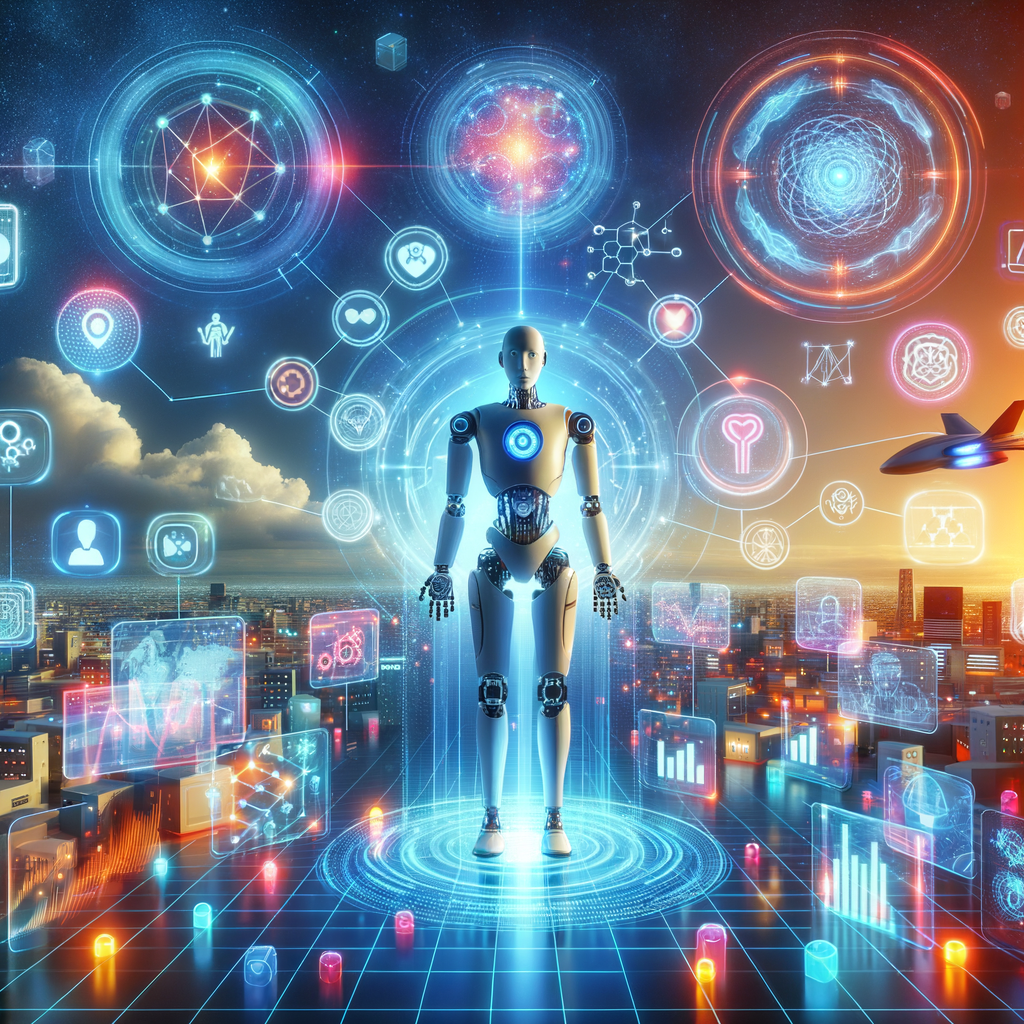
Understanding AI Reinforcement Learning
AI reinforcement learning is a subset of machine learning where an agent learns to make decisions by taking actions in an environment to maximize cumulative reward. This approach mimics the way humans learn from feedback, making it a powerful tool for developing intelligent systems.
Unlike supervised learning, which relies on labelled data, reinforcement learning involves trial and error. The agent receives feedback in the form of rewards or penalties, enabling it to adjust its actions accordingly. This process is akin to training a pet with treats for good behaviour.
The concept of reinforcement learning isn’t new, but recent advancements in computational power and algorithms have propelled it into the spotlight. It has become a critical component in various AI applications, from robotics to gaming.
Key Components of Reinforcement Learning
Reinforcement learning comprises several key components: the agent, the environment, actions, states, and rewards. The agent interacts with the environment through actions that affect its state. Each action results in a reward or penalty, guiding the agent’s future decisions.
- Agent: The learner or decision-maker in the system.
- Environment: Everything that the agent interacts with.
- State: A representation of the current situation within the environment.
- Action: Choices made by the agent that affect the state.
- Reward: Feedback from the environment based on the action taken.
This framework allows for dynamic decision-making processes that adapt over time based on accumulated experience.
The Impact of AI Reinforcement Learning on Technology
The impact of AI reinforcement learning on technology is profound. It has led to significant advancements across various industries, including autonomous vehicles, healthcare, finance, and more. By enabling machines to learn from their interactions with the world, reinforcement learning is pushing the boundaries of what’s possible.
In the automotive industry, for example, reinforcement learning is crucial for developing algorithms that allow self-driving cars to navigate complex environments safely. These algorithms enable vehicles to make real-time decisions based on traffic conditions, obstacles, and other factors.
The healthcare sector also benefits from reinforcement learning through improved diagnostic tools and personalized medicine. By analysing patient data over time, AI systems can predict potential health issues and suggest tailored treatment plans.
Real-World Applications
A notable example of reinforcement learning in action is AlphaGo by DeepMind. AlphaGo’s success against human champions in the game of Go demonstrated the potential of AI to tackle complex problems previously thought beyond machines’ capabilities. [Read more about AlphaGo](https://deepmind.com/research/case-studies/alphago-the-story-so-far)
Another application is robotic control systems. Reinforcement learning enables robots to perform tasks such as walking or grasping objects by optimizing their movements through continuous feedback.
The Influence on Lifestyle
The influence of AI reinforcement learning extends beyond technology into everyday life. It has implications for personalized experiences in entertainment, education, and even home automation.
Streaming services like Netflix use reinforcement learning algorithms to recommend content based on user preferences and viewing history. These systems continuously refine recommendations as they learn more about user behaviours.
In education, adaptive learning platforms leverage reinforcement learning to provide customized lessons that adjust to students’ progress. This personalized approach enhances engagement and improves learning outcomes.
Lifestyle Enhancements Through Smart Home Devices
Smart home devices are becoming increasingly intelligent thanks to reinforcement learning. Thermostats that adjust temperature settings based on occupancy patterns or voice-activated assistants that learn user preferences exemplify how this technology impacts daily routines.
- Thermostats: Devices like Nest use algorithms to optimize heating schedules based on user habits and external conditions.
- Voice Assistants: Alexa and Google Assistant improve functionality by understanding speech better over time through continuous interaction analysis.
Challenges and Future Prospects
Despite its potential, AI reinforcement learning faces several challenges. One significant issue is ensuring safety and reliability in critical applications such as healthcare or autonomous driving where errors could have severe consequences.
Another challenge lies in scaling these systems efficiently while maintaining performance quality across diverse environments with varying complexities.
The Road Ahead
The future prospects for AI reinforcement learning are exciting yet uncertain due to these challenges; however ongoing research aims at overcoming these hurdles by developing robust frameworks capable of handling real-world variability effectively while ensuring ethical considerations are met alongside technological advancements made possible through collaborative efforts across academia industry alike continue pushing boundaries further than ever before imagined possible today already witnessing transformative changes reshaping entire sectors globally predicted only accelerate coming years ahead. Explore further insights



